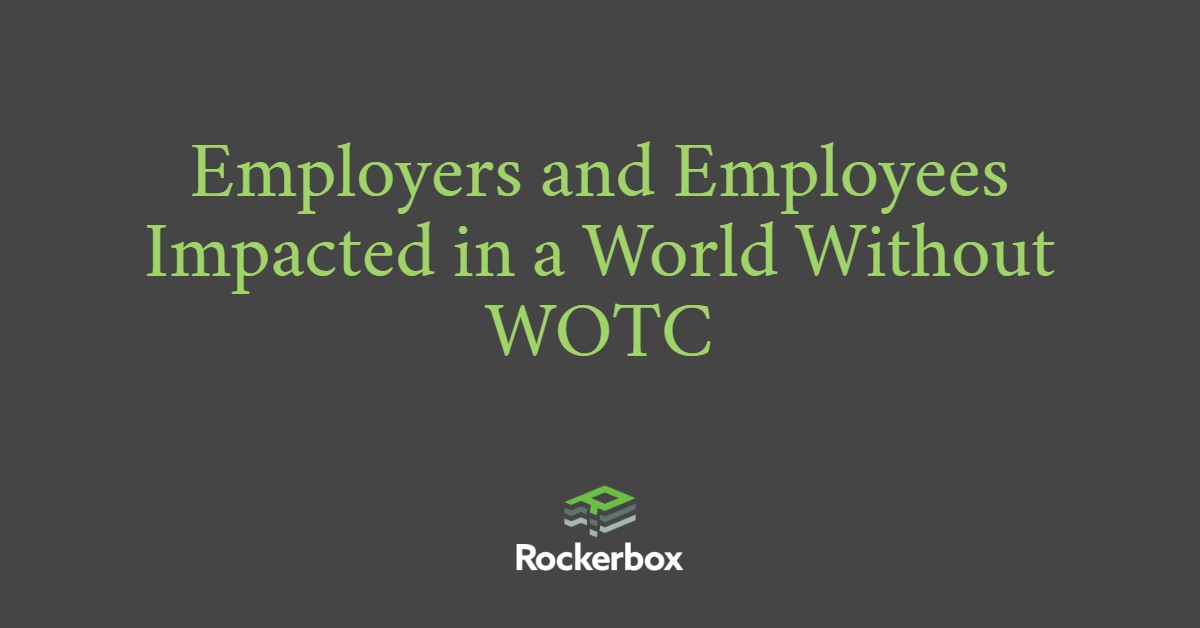
The Economic and Social Impact of a World Without the Work Opportunity Tax Credit (WOTC)
As we approach the December 31, 2025 deadline for the renewal of the Work Opportunity Tax Credit (WOTC) program, it is crucial to examine the significant economic and social implications of failing to extend or make this program permanent. WOTC has long been a vital tool in encouraging employers to hire individuals from groups that face barriers to employment, while simultaneously providing critical support to those working toward financial self-sufficiency.
Without WOTC, both employers and employees—along with the broader economy—stand to face considerable challenges.
The Financial Burden on Employers
Employers who participate in the WOTC program currently benefit from substantial tax savings, averaging $2,500 per eligible hire, with some credits reaching up to $9,600. These credits incentivize the hiring of veterans, individuals receiving government assistance, the formerly incarcerated, and other marginalized groups.
If WOTC is not renewed, these employers will:
- Lose Crucial Tax Relief: Many businesses rely on these credits to offset hiring costs, particularly in industries with thin margins such as retail, hospitality, and food service. The loss of these incentives could force businesses to rethink hiring strategies or scale back operations.
- Bear Increased Recruitment Costs: Hiring individuals from targeted groups often requires additional training and support. Without WOTC, these expenses would fall entirely on the employer, potentially leading to fewer opportunities for these candidates.
- Face Economic Ripple Effects: Reduced hiring could stifle economic growth, particularly in communities where WOTC-supported jobs are a lifeline for local economies.
The Impact on At-Risk Employees
WOTC plays a pivotal role in helping individuals from disadvantaged backgrounds secure stable employment. Without this program, the road to financial self-sufficiency becomes even more challenging for millions of Americans.
- Decreased Job Opportunities: Employers may deprioritize hiring from WOTC-eligible groups, leaving many individuals without access to meaningful work.
- Greater Reliance on Government Assistance: A lack of stable employment opportunities could increase reliance on public assistance programs, placing additional strain on government resources.
- Widening Socioeconomic Gaps: For individuals at risk of poverty or already struggling to make ends meet, losing the WOTC program means losing a critical support system that fosters upward mobility and financial independence.
Broader Economic and Social Implications
The absence of WOTC would have far-reaching consequences for the U.S. economy and society:
- Increased Unemployment: By removing a key hiring incentive, unemployment rates among disadvantaged groups could rise, further exacerbating income inequality.
- Weakened Local Economies: Communities with high concentrations of WOTC-eligible workers would feel the brunt of reduced employment opportunities, leading to lower consumer spending and slower economic growth.
- Loss of Progress in Workforce Diversity: WOTC encourages employers to diversify their workforce by hiring individuals from underrepresented and at-risk groups. Without it, these gains could be reversed.
The Case for Making WOTC Permanent
Rockerbox has long championed the WOTC program as a win-win for employers and employees. While we spend considerable time helping clients maximize its benefits, it’s just as important to highlight the costs of inaction.
Failing to renew or make WOTC permanent by December 31, 2025, would undermine decades of progress in fostering inclusive hiring practices and empowering individuals to achieve financial independence. It’s not just about tax credits—it’s about creating a more equitable and resilient economy.
Employers, policymakers, and advocates must work together to ensure that WOTC remains a cornerstone of U.S. labor policy. By doing so, we can continue to support businesses, empower employees, and drive economic growth for years to come.
#WOTC #EconomicImpact #SocialEquity #RockerboxInsights #TaxPolicy